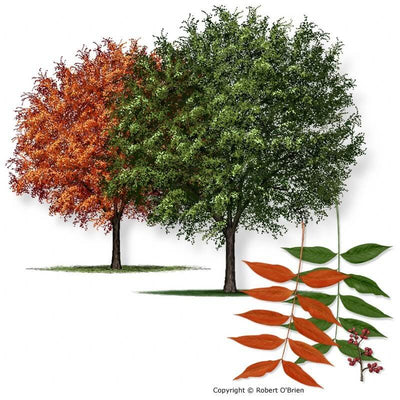Holly Yaupon Pride of Houston
Holly Yaupon Pride of Houston
Description: 'Pride of Houston' is a selected cultivar known for its compact, rounded growth habit and abundance of bright red berries in the fall and winter. It typically grows to heights of 8 to 12 feet (2.4 to 3.7 meters) with a similar spread, though it can be pruned to maintain a smaller size. Like other Yaupon Hollies, it features small, glossy, dark green leaves that are oval-shaped with serrated margins. Inconspicuous white flowers appear in spring, followed by persistent red berries that provide ornamental interest and attract birds.
Best Growing Zones: Yaupon Hollies, including 'Pride of Houston', are well-suited to USDA hardiness zones 7 through 10. They thrive in warm, humid climates with mild winters and are tolerant of a wide range of growing conditions, including heat, drought, and salt spray. They are commonly found in coastal regions, but they can also be grown inland with proper care.
Soil Requirements: Yaupon Hollies prefer moist, well-drained soil but can tolerate a variety of soil types, including clay, loam, and sandy soil. They are relatively drought-tolerant once established but benefit from regular watering during dry periods, especially during the growing season and when berries are developing. Adding organic matter to the soil can improve fertility and drainage.
Maintenance: Yaupon Hollies, including 'Pride of Houston', are relatively low-maintenance plants. They require minimal pruning but can be trimmed to shape or maintain size if desired. Pruning is typically done in late winter or early spring before new growth begins. Yaupon Hollies are relatively pest and disease resistant but may occasionally be affected by issues such as scale insects or leaf spot diseases. These problems can usually be managed with proper cultural practices.
Landscape Use: 'Pride of Houston' and other Yaupon Hollies are valued for their attractive foliage, berries, and versatility in the landscape. They can be used as hedges, screens, borders, or specimen plants in gardens and landscapes. They are also suitable for planting along driveways, walkways, or property boundaries, where their dense growth habit provides privacy and security. Additionally, they provide habitat and food for wildlife, making them valuable components of wildlife gardens and naturalized areas.







